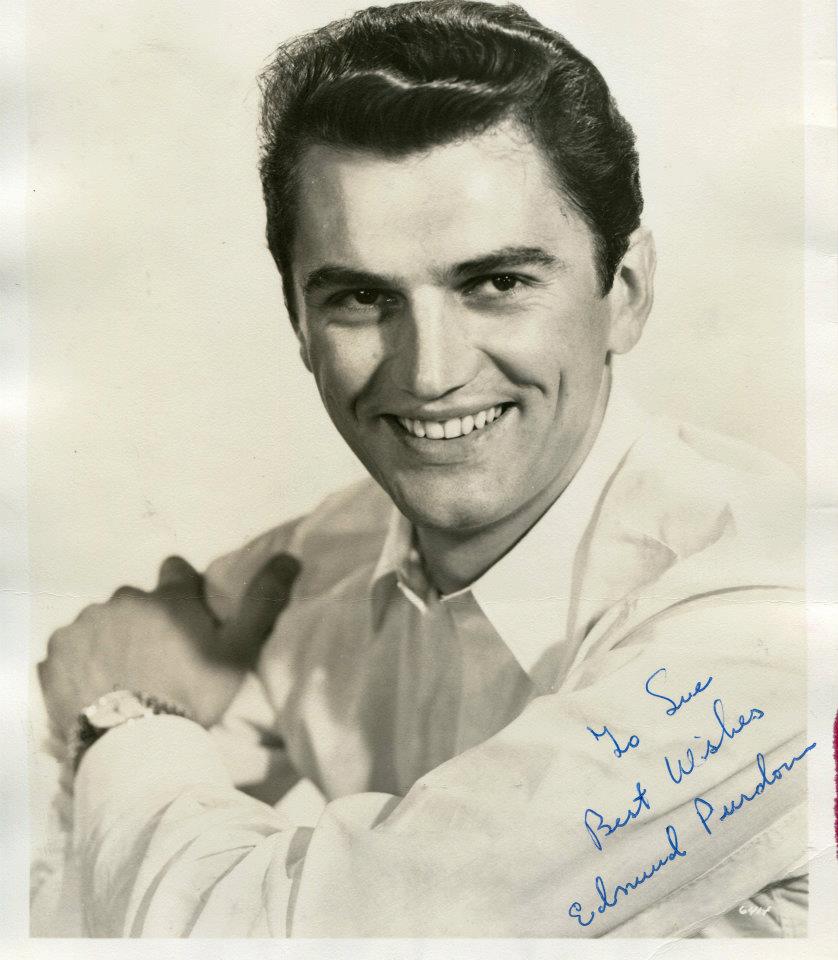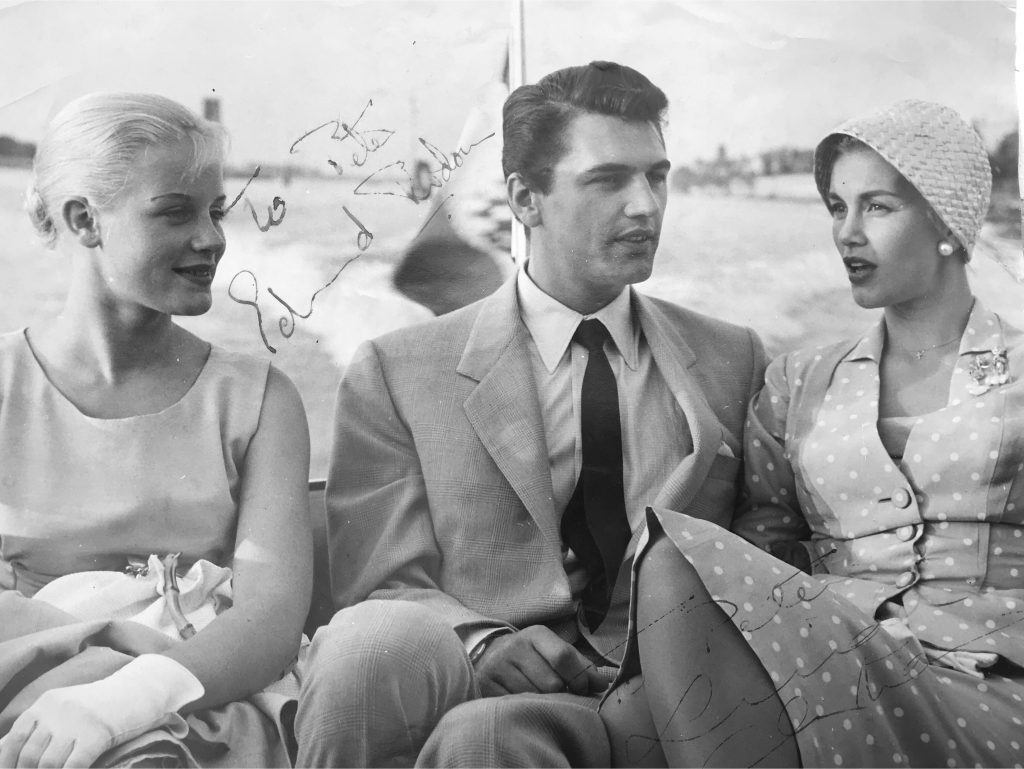

The independent obituary in 2009.
The darkly handsome British actor Edmund Purdom became a Hollywood star in the mid-Fifties, and will be remembered particularly for playing the leading role in The Student Prince (1954), in which he mimed the songs to the voice of Mario Lanza. Though he possessed a pleasingly liquid, resonant speaking voice, Purdom was not the most animated of actors, but it was not entirely his fault that his most important leading roles were in two of Hollywood’s most expensive flops, The Egyptian and The Prodigal. Later he made a new career in Italy, where he starred in “sword and sandal” movies and made extensive use of his mellifluous voice dubbing English dialogue for Italian films.
Born Edmund Anthony Cutlar Purdom in 1924 in Welwyn Garden City, Hertfordshire, he was the son of Charles Benjamin Purdom, a leading light in the Garden City movement. He was educated by Jesuits at St Ignatius College, and by Benedictines at Downside School, before making his stage début with a repertory company in 1945. In 1951 he played Metallus Cimber in a BBC television version of Julius Caesar, and in the same year he was part of the company that Laurence Olivier and Vivien Leigh took to Broadway, where he played small roles in Shakespeare’s Antony and Cleopatra and George Bernard Shaw’s Caesar and Cleopatra.
He tested at Twentieth Century-Fox for the leading male role in My Cousin Rachel (1952), which went to Richard Burton, but the studio instead cast him as ship’s officer Lightoller in Titanic (1953). His performance caught the attention of MGM, resulting in a contract and the small role of Brutus’s servant Strato in Joseph Mankiewicz’s splendid screen version of Julius Caesar (1953), with Marlon Brando, James Mason and John Gielgud.
Purdom’s first sizeable role was playing a stuffy businessman who sets out to woo one of seven sisters in the musical Athena (1954), the story of a family of health and food faddists – originally planned for Esther Williams, but converted into a vehicle for Jane Powell and Debbie Reynolds. Reynolds, who confessed that she “hated the script,” added, “The only relief on the set was the action going on off camera. Linda Christian, who was Mrs Tyrone Power at the time, was also in the picture. She was a temptress, and right before our eyes we saw the tempted, who was Edmund Purdom. They would go to his little trailer, close the door and be gone for quite a while.”
Christian later divorced Power and became Purdom’s second wife. Reynolds commented of Purdom: “He was a gorgeous, debonair Englishman, who was affected in a way that didn’t suit a young man in Hollywood at that time. Had he stayed in England and met Cubby Broccoli a few years later, he’d have made a perfect James Bond.”
Purdom then had his major break when Mario Lanza, already battling with weight gain, started feuding with the director of The Student Prince, causing MGM to take him off the picture and replace him with Purdom. Lanza’s pre-recordings were used on the soundtrack, so audiences had to adjust to the powerful tones of Lanza coming from the slight Purdom.
But he was likeable as the Ruritanian prince who is sent to have a taste of life before fulfilling his destiny, and who falls in love with a tavern owner’s daughter, whom he has to forsake when duty calls. With its lilting music by Sigmund Romberg and a spirited performance by co-star Ann Blyth, the film was entertaining, but did less business than it might have had Lanza been visually present.
Purdom than inherited another role, when Marlon Brando declined to star in The Egyptian (1954) after reading the script. As a physician in pre-Christian times who is lured away from his tavern-waitress sweetheart (Jean Simmons) by a Babylonian vamp (Bella Darvi), Purdom was wooden, and Darvi was even worse (the mistress of studio chief Darryl F. Zanuck, her career was brief, and she eventually killed herself). Co-star Peter Ustinov later said: “Being in this movie was like being on the set of Aida and not being able to find the way out”. Despite some striking staging by director Michael Curtiz, the film, personally produced by Zanuck, was trounced by critics and lost a fortune.
In 1976 he had a role in Vincente Minnelli’s A Matter of Time, and in the television film, Sophia Loren: her own story (1980), he was convincingly Italian playing the writer-director Vittorio De Sica. In 1984 he directed his first and only film, Don’t Open ‘Til Christmas, a thriller about a psychopath who slaughters Santas, in which he also played the leading role as a police inspector.
Edmund Anthony Cutlar Purdom, actor: born Welwyn Garden City, Hertfordshire 19 December 1924; four times married (one daughter and one daughter deceased); died Rome 1 January 2009.

